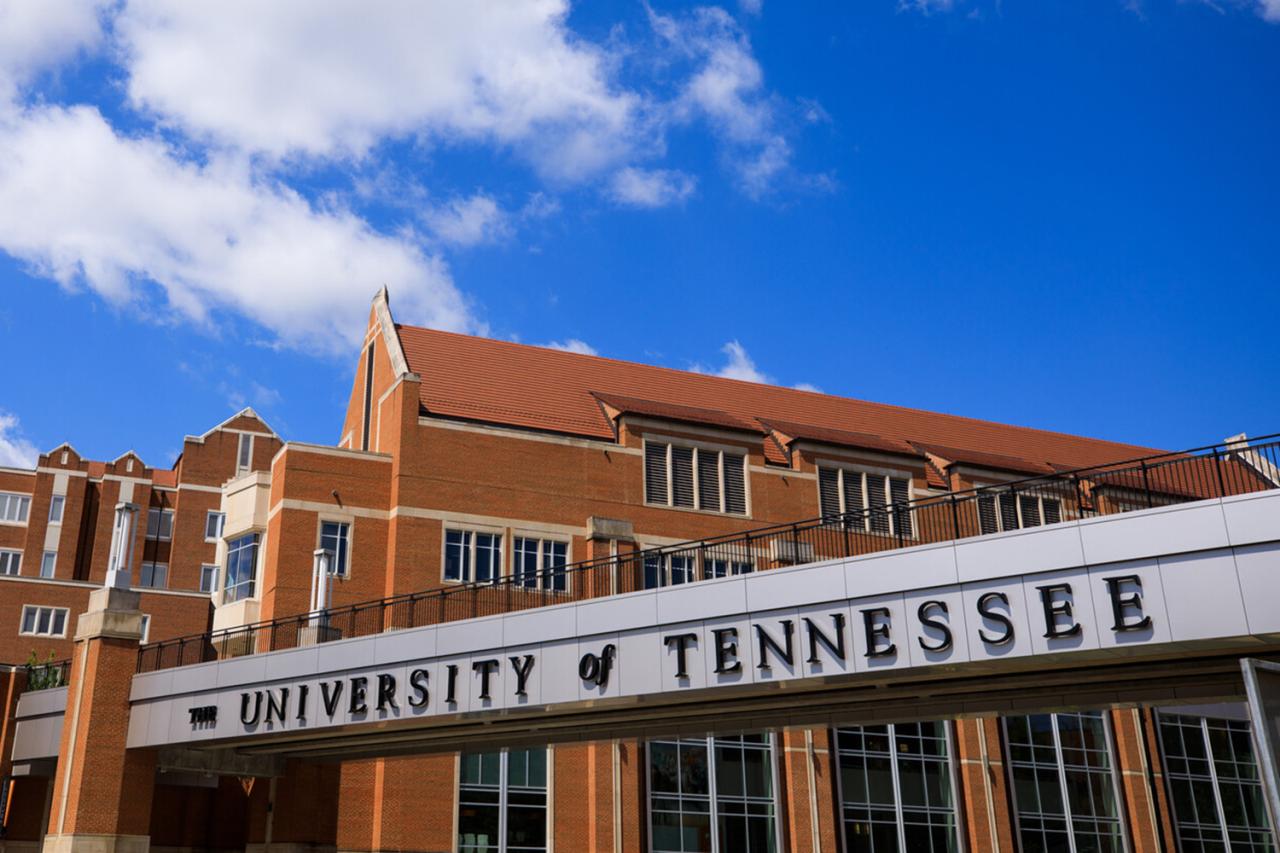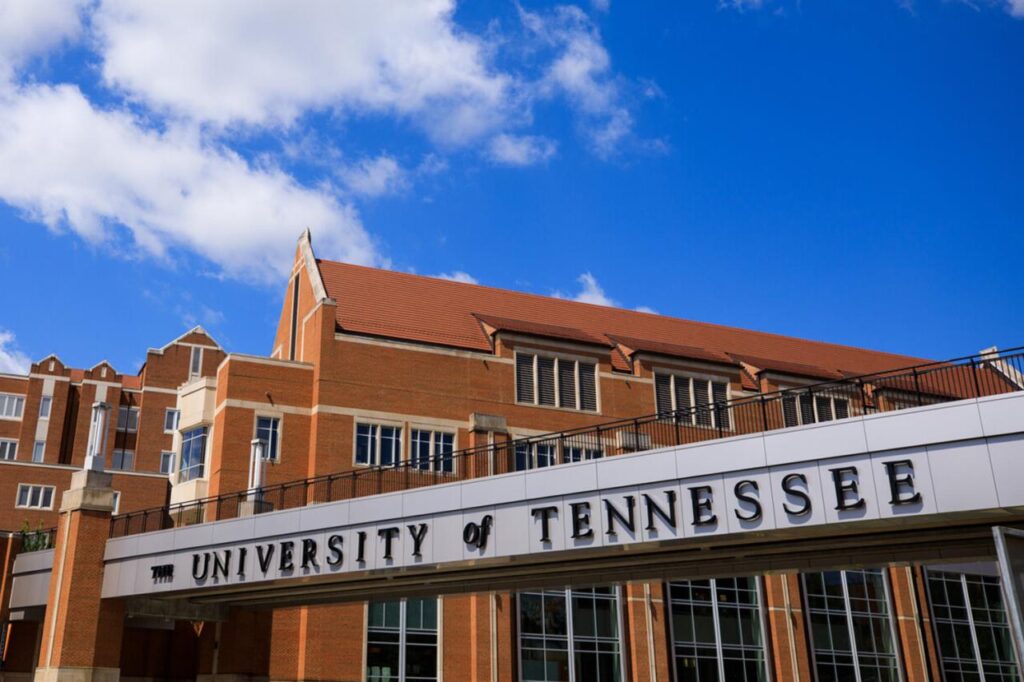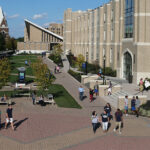Nestled in the heart of Tennessee, the University of Tennessee stands as a beacon of academic excellence and vibrant campus life. Its rich history, diverse student body, and renowned research programs have shaped its reputation as a leading institution in the southeastern United States.
From its humble beginnings to its present-day prominence, the University of Tennessee has played a pivotal role in shaping the intellectual and cultural landscape of the region. Join us as we delve into the university’s academic offerings, campus culture, athletic achievements, and the surrounding community that enriches the student experience.
Academic Programs and Research
The University of Tennessee offers a comprehensive range of academic programs at the undergraduate and graduate levels, spanning diverse disciplines. At the undergraduate level, students can pursue a wide array of majors, including traditional fields such as engineering, business, and the humanities, as well as specialized programs like data science, sustainability, and health sciences.
The university also offers a robust graduate program portfolio, with doctoral and master’s degrees available in various fields, including engineering, education, and social work.
Research Strengths and Key Areas of Focus
The University of Tennessee is renowned for its research prowess, with particular strengths in areas such as energy, health sciences, and materials science. The university’s research efforts are supported by state-of-the-art facilities and collaborations with industry partners. In recent years, the university has secured significant research funding, demonstrating its commitment to innovation and discovery.
Enrollment and Faculty
The University of Tennessee has a diverse student body, with over 28,000 students enrolled in its undergraduate and graduate programs. The university’s faculty is equally diverse and accomplished, with many holding prestigious awards and grants. The student-to-faculty ratio is approximately 17:1, providing students with ample opportunities for personalized attention and mentorship.
Campus Life and Culture
The University of Tennessee is a vibrant and diverse community, offering a rich campus life experience for its students. With a student body representing over 100 countries and all 50 states, the university fosters an inclusive environment that embraces different cultures and perspectives.
The campus is alive with social and cultural events, activities, and traditions that cater to a wide range of interests. From sporting events to concerts, art exhibitions to lectures, there’s always something happening on campus. Students can also join over 500 student organizations, ranging from academic clubs to social groups, providing opportunities for connection, leadership, and personal growth.
Campus Facilities
The university provides a wide range of facilities to support student life and academic pursuits. The libraries offer an extensive collection of books, journals, and research materials, while the state-of-the-art athletic centers provide ample opportunities for fitness and recreation. The university also offers a variety of housing options, including traditional dorms, apartments, and Greek houses, to meet the diverse needs of its students.
Athletics and Sports
The University of Tennessee is renowned for its exceptional athletic programs, which have consistently ranked among the nation’s best. The university fields competitive teams in a wide range of sports, including football, basketball, baseball, softball, and track and field.
The Tennessee Volunteers football team is a perennial powerhouse, having won six national championships and 13 Southeastern Conference (SEC) championships. The team plays its home games at Neyland Stadium, which is one of the largest and most iconic stadiums in college football.
The Volunteers basketball team is also a perennial contender, having won six SEC championships and reaching the NCAA Tournament 20 times.
Athletic Facilities
The university boasts state-of-the-art athletic facilities that provide student-athletes with the resources they need to excel. These facilities include:
- Neyland Stadium (football)
- Thompson-Boling Arena (basketball)
- Lindsey Nelson Stadium (baseball)
- Sherri Parker Lee Stadium (softball)
- Haslam Field (track and field)
Fan Support
The University of Tennessee has a passionate and dedicated fan base that supports its athletic teams with unwavering enthusiasm. The Volunteers have a strong tradition of fan support, and their games are often sold out.
The university’s athletic programs have a significant impact on campus life and community engagement. The Volunteers’ success on the field brings pride and excitement to the university and the surrounding community. The athletic programs also provide opportunities for student-athletes to develop leadership, teamwork, and discipline.
Location and Surroundings
The University of Tennessee, Knoxville, is situated in the heart of East Tennessee, offering a vibrant and engaging environment for students. Knoxville, a thriving city of over 180,000 residents, provides a rich blend of urban amenities and natural beauty, with the Great Smoky Mountains National Park just a short drive away.
The university is deeply integrated with the local community, fostering a sense of belonging and collaboration. The university’s presence has a significant impact on Knoxville’s economy, with its research and innovation driving economic development and creating jobs.
Cultural Landmarks
Knoxville boasts a diverse array of cultural landmarks, including the Knoxville Museum of Art, the East Tennessee History Center, and the Bijou Theatre. These institutions offer a wide range of exhibitions, performances, and educational programs, enriching the cultural landscape of the city.
Recreational Opportunities
The university’s proximity to the Great Smoky Mountains National Park provides ample opportunities for outdoor recreation. Hiking, biking, fishing, and camping are just a few of the activities enjoyed by students and locals alike. The city of Knoxville also features numerous parks, greenways, and recreational facilities, catering to a variety of interests.
Economic Development
The University of Tennessee is a major economic driver for Knoxville and the surrounding region. The university’s research and development activities, as well as its highly skilled graduates, contribute to the growth of industries such as healthcare, technology, and manufacturing.
History and Legacy
The University of Tennessee, established in 1794, has a rich history marked by notable milestones and influential figures. Its journey began as Blount College, named after territorial Governor William Blount, and has since evolved into a comprehensive research university with a global reputation.
Key Milestones
- 1794:Founded as Blount College in Knoxville, Tennessee.
- 1807:Renamed East Tennessee College.
- 1840:Chartered as the University of Tennessee.
- 1869:Land-grant status granted, expanding the university’s focus to agriculture and mechanical arts.
- 1914:Joined the Southern Association of Colleges and Schools (SACS).
- 1969:Merged with the University of Tennessee at Memphis.
- 1972:Opened the Space Institute in Tullahoma, Tennessee.
- 1991:Established the Howard H. Baker Jr. Center for Public Policy.
- 2011:Became a member of the Association of American Universities (AAU).
Influential Figures
- James D. Hoskins:First president of the university (1827-1849).
- Charles W. Dabney:President from 1887 to 1904, oversaw the university’s expansion and modernization.
- John C. Hodges:President from 1921 to 1946, led the university through the Great Depression and World War II.
- Clovis E. Byers:President from 1969 to 1972, oversaw the merger with the University of Tennessee at Memphis.
- Joe Johnson:President from 1991 to 2002, led the university to membership in the AAU.
Major Achievements
- Academic Excellence:Ranked among the top 100 universities in the United States by U.S. News & World Report.
- Research:Designated as a Carnegie Tier 1 research university with annual research expenditures exceeding $500 million.
- Athletics:A member of the Southeastern Conference (SEC), the university’s athletic teams have won multiple national championships.
- Public Service:Through its extension and outreach programs, the university serves communities throughout Tennessee and beyond.
Legacy
The University of Tennessee has a proud legacy of providing high-quality education, conducting groundbreaking research, and serving the state and region. Its alumni have made significant contributions to various fields, including science, medicine, business, and government. The university continues to build on its strong foundation, striving to be a beacon of knowledge and innovation for generations to come.
Outcome Summary

As we conclude our exploration of the University of Tennessee, it is evident that this institution is more than just a place of learning; it is a community that fosters intellectual growth, cultural enrichment, and a lifelong connection to the Volunteer spirit.
Whether you are a prospective student, a proud alumnus, or simply curious about one of Tennessee’s most esteemed universities, we hope this overview has provided you with a deeper understanding of its legacy and its enduring impact.


